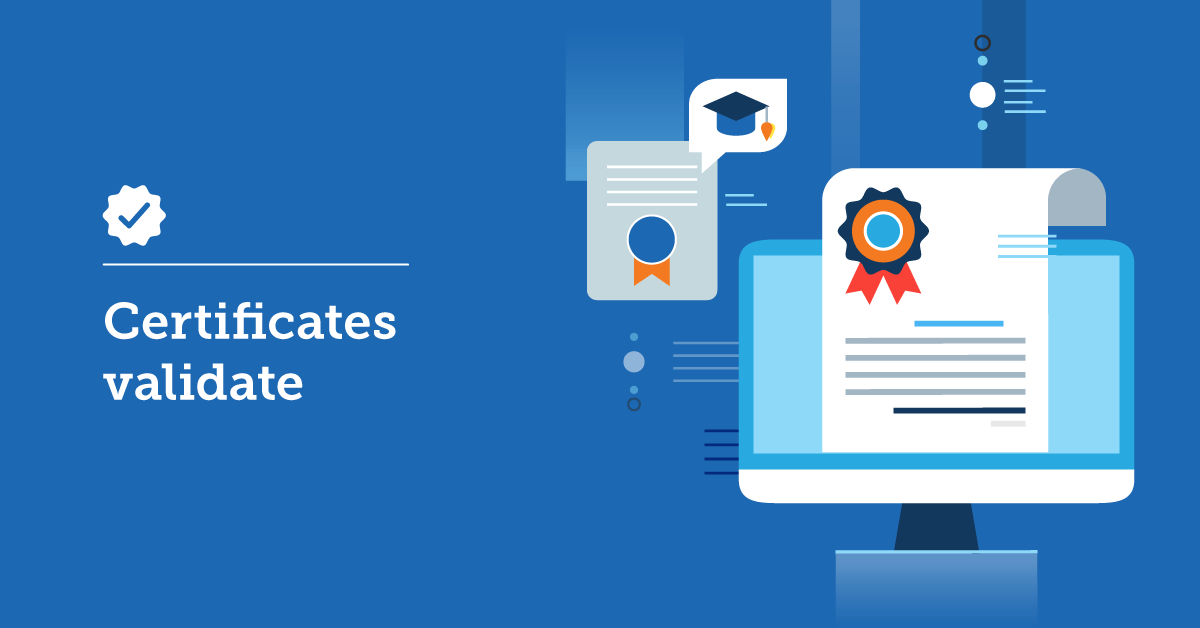Have you heard? The demand for online certificate courses is on the rise. Or so say nearly 12,000 people entering the job market who, when asked, said they were turning their gaze towards certification for specific skills.
This growing demand means that certificates are fast becoming one of the most important considerations for freelance eLearning consultants. Okay, you’re listening. But wait! What if you and your clients aren’t official certifying bodies? Can you still take advantage of this growing demand for training certificates? Sure!
Here are the top reasons why certification is important to learners, whether it’s officially recognized or not.
Certification is motivating
Let’s be honest. “Because I say so!” is rarely a good enough reason for adult learners to engage in training. And a lack of motivation and engagement leads to other unwanted outcomes, like high dropout rates and poor application of learning in the workplace.
Sure, incentives like promotions and annual bonuses might excite some learners. But often, this kind of long-term rewards are only effective when they’re balanced with short-term wins. Short-term wins like training certificates.
So, make eLearning certificates a source of motivation by awarding them for the completion of focused chunks of learning, like a short course or module. For example, sales staff could earn a certificate after completing a 2-week online course about “high converting sales conversations”.
By incorporating these short-term achievements into your eLearning course, you’ll make learners feel like their training is important, and that their efforts are appreciated. Plus, the motivational benefits of certification will help learners keep track of their own progress and development goals.
All of this will keep learners committed to their training, and they’ll be more likely to engage in your course until the end. In fact, studies have found that when certificates are removed from the learning experience, course completion rates drop by almost 50%.
It helps employees climb the professional ladder
The need for recognition is as human a need as any, and it offers a whole host of advantages for creating happy, productive workplaces. The WorkHuman Research Institute’s study on the ROI of recognition found that 82% of employees are more engaged, and 79% work harder, when they receive regular recognition.
Enter, the training certificate! A convenient, digital form of recognition that says “You did it! And we’re proud of you for doing it”. But the importance of certification isn’t just about planting a feather in the cap of successful learners. It’s also a self-expressive tool for learners to tell the world about their professional development.
To reap this benefit, make sure that your eLearning course certificates can be added to learners’ LinkedIn profiles and Facebook pages. In addition, encourage learners to share their success with course-specific hashtags that can be included in tweets and other social media. Hootsuite, for example, is well known for its social media certificates that give learners public recognition of their social media expertise; something they can show to colleagues, clients, and employers.

It provides employees with credibility
To stay ahead of the game today, companies must continuously learn and adapt – and so should their employees. This is probably why 67% of employees believe they must continuously reskill themselves to stay in their careers and remain credible.
One of the ways employees can keep their skills up to date is through training certificates. By incorporating certificates into your courses, you’ll be providing employees with the proof they need to convince companies that they’re experts in their field. In other words, companies should hire them, if they haven’t already!
But, in order for your training certificates to be a valued source of credibility, they need to be earned. Would you feel prouder of the certificate you earned after having to learn, practice and be tested on your new skills? Or, the certificate you earned after passively watching a 6-minute video? The answer’s obvious, right?
In other words, design your courses in such a way that learners must first demonstrate their newly found knowledge and abilities, and meet a certain standard in doing so, before they are awarded a certificate.
It’s a means for continuous education
Careers in the 21st century don’t look like those from the 20th century. Career growth and development isn’t a straight, upward path anymore. Rather, having a successful career often means finding fulfillment. And this leads many people to change their jobs, and even industries, multiple times throughout their lives.
You might be thinking: “That’s crazy! Back to college again and again?” But nobody said anything about college. Because online certificate courses mean that employees get to learn new skills, in a new industry, for a new job, without ever having to step foot on campus. Practical, relevant certificates are all they need to make a break into a field that excites them.
If you’re consulting on courses in industries that experience frequent change, like digital marketing and software engineering, certificates will be an even more important part of the learning experience. For example, with new coding languages and app development tools becoming available every day, software engineers need to be trained over and over throughout their careers. And certificates will be evidence of their continuous learning.
Over to you
With all the reasons above, let’s return to our very first question: can you take advantage of the growing demand for training certificates if you’re not a certifying body? You can, and you should!
The benefits of a certificate program leave employees feeling motivated, engaged, and confident in their professional status. Not to mention that they get to chase their dream career without having to go back to school. It’s no wonder, then, that employees want certificates so much. So, why not offer them what they need?
| Tags: Training Certificates



